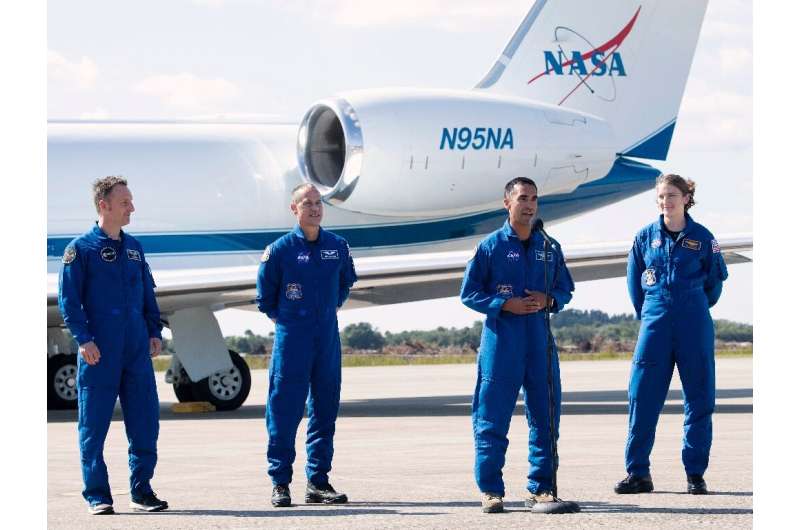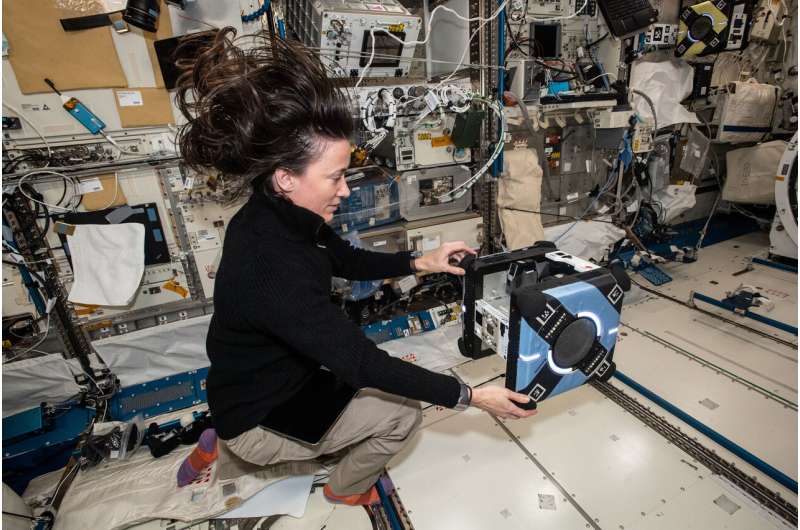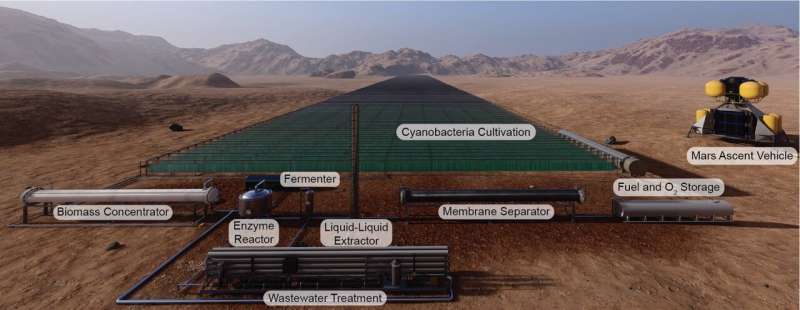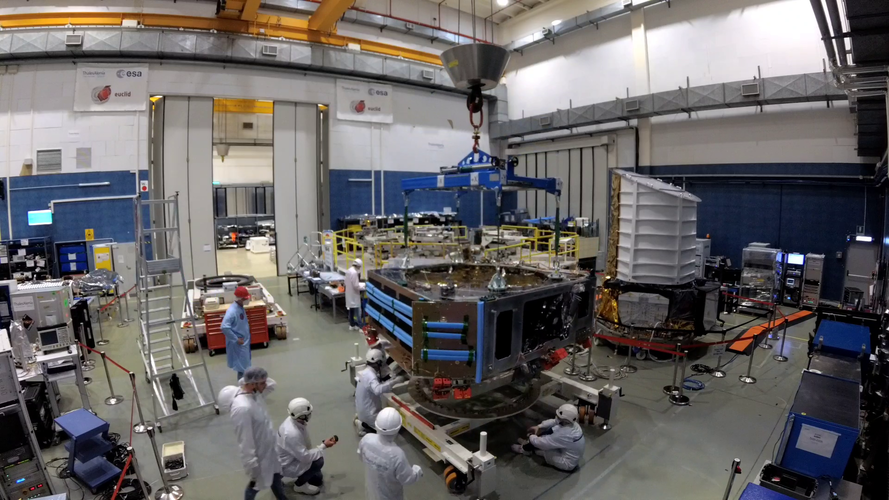
Copernical Team
NASA sending four astronauts to ISS on Sunday

NASA is teaming up with SpaceX once more to send four astronauts to the International Space Station on Sunday, including three first-timers.
The crew of mission "Crew-3" will spend six months on the orbital outpost, conducting research in areas including material sciences, health, and botany, to help inform future deep space exploration and benefit life on Earth.
Scientists measure the atmosphere of a planet 340 light-years away

An international team of scientists, using the ground-based Gemini Observatory telescope in Chile, is the first to directly measure the amount of both water and carbon monoxide in the atmosphere of a planet in another solar system roughly 340 light-years away.
The team is led by Assistant Professor Michael Line of Arizona State University's School of Earth and Space Exploration, and the results have been recently published in the journal Nature.
There are thousands of known planets outside of our own solar system (called exoplanets). Scientists use both space telescopes and ground-based telescopes to examine how these exoplanets form and how they are different from the planets in our own solar system.
For this study, Line and his team focused on planet "WASP-77Ab," a type of exoplanet called a "hot Jupiter" because they are like our solar system's Jupiter, but with a temperature upwards of 2,000 degrees Fahrenheit.
NASA's SpaceX Crew-3 astronauts launch to space station alongside microgravity research

NASA's SpaceX Crew-3 mission is set to launch four astronauts to the International Space Station aboard a SpaceX Crew Dragon on Sunday, Oct. 31. The mission includes three NASA astronauts—mission Commander Raja Chari, Pilot Tom Marshburn, and Mission Specialist Kayla Barron—as well as ESA (European Space Agency) astronaut Matthias Maurer, who will also serve as a mission specialist.
Aboard Dragon with the crew will be more than 400 pounds of supplies and hardware, including over 150 pounds of which they will use to conduct experiments aboard the space station. Here is some of the research riding with them into low-Earth orbit.
Spacecraft guidance in your pocket
Physics experiment in Earth's atmosphere could help improve GPS performance

The Earth's atmosphere has been used as a 'laboratory' to carry out a physics experiment, in research collaboration involving the University of Strathclyde which could help to improve the performance of GPS.
The study displays a new method of remotely monitoring the plasma in the ionosphere and of controlling wave modes in a way which could help GPS make better calculations in the face of extreme space weather.
The researchers conducted a controlled radar wave experiment by injecting radio waves into the ionosphere, at slightly different frequencies.
The returned signal was then recorded and analyzed. The researchers found that plasma waves were excited in the ionosphere and non-linear waves were mixed, leading to a wide spectrum of non-linear frequencies in the returned signal.
Plasma in the ionosphere plays a significant role in reflecting and modifying radio waves used for communication and radio navigation systems such as GPS, but the accuracy of these can be affected by 'space weather' events such as solar storms.
The experiment was carried out at the EISCAT facility near Tromsø, Norway and the research has been published in the journal Nature Communications.
Making Martian rocket biofuel on Mars

Researchers at the Georgia Institute of Technology have developed a concept that would make Martian rocket fuel, on Mars, that could be used to launch future astronauts back to Earth.
The bioproduction process would use three resources native to the red planet: carbon dioxide, sunlight, and frozen water. It would also include transporting two microbes to Mars. The first would be cyanobacteria (algae), which would take CO2 from the Martian atmosphere and use sunlight to create sugars. An engineered E. coli, which would be shipped from Earth, would convert those sugars into a Mars-specific propellant for rockets and other propulsion devices. The Martian propellant, which is called 2,3-butanediol, is currently in existence, can be created by E. coli, and, on Earth, is used to make polymers for production of rubber.
Euclid spacecraft integration
 Video:
00:00:19
Video:
00:00:19
The Euclid payload and service module are currently at Thales Alenia Space in Torino, Italy, where they will be integrated to form the final, finished spacecraft.
In this video Euclid’s service module is being transferred onto a support near the payload module, in order to prepare it for further integration activities.
Euclid is ESA’s mission to map the geometry of the Universe and better understand the mysterious dark matter and dark energy.
‘ESA Champions’ award initiative launched

Whether you are hosting a YouTube channel about space or volunteering to speak at your local school, we want to recognise and reward your passion and advocacy for space.
Crew-3 say cheese
 Image:
Image:
ESA astronaut Matthias Maurer and his NASA crew mates Raja Chari, Thomas Marshburn and Kayla Barron are all smiles as they arrive at NASA’s Kennedy Space Center in Florida, USA on 26 October 2021.
Collectively, the astronauts make up Crew-3 and will travel to the International Space Station on the SpaceX Crew Dragon spacecraft “Endurance”. The first launch opportunity for Crew-3 is 07:21 CET (06:21 GMT, 02:21 EDT) Sunday 31 October 2021, with a backup date of 3 November.
The Dragon will dock with the Space Station 22 hours after launch, allowing for a short overlap with the Crew-2 members who
ESA acts to make air travel greener

Air passengers will soon be able to cut their carbon footprint when travelling on flights that are routed using satellites.
Hubble gives unprecedented, early view of a doomed star's destruction
 Like a witness to a violent death, NASA's Hubble Space Telescope recently gave astronomers an unprecedented, comprehensive view of the first moments of a star's cataclysmic demise. Hubble's data, combined with other observations of the doomed star from space- and ground-based telescopes, may give astronomers an early warning system for other stars on the verge of blowing up.
"We used to ta
Like a witness to a violent death, NASA's Hubble Space Telescope recently gave astronomers an unprecedented, comprehensive view of the first moments of a star's cataclysmic demise. Hubble's data, combined with other observations of the doomed star from space- and ground-based telescopes, may give astronomers an early warning system for other stars on the verge of blowing up.
"We used to ta 